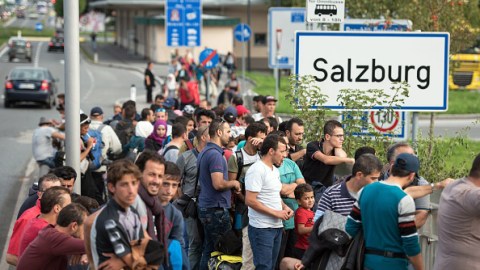For Aging Europe, Refusing Refugees Is Bad Economics

As the EU grapples with the surge of migrants crossing into the continent, some European countries have proactively built razor wire fences, set up border controls, and shut down public transportation to combat the influx of people attempting to cross borders. If the journey wasn’t already perilous before, now Syrians, Afghans, and Eritreans are forced to take dangerous sea routes or backroads through the Balkans to reach the European nations with the most opportunity. In just one week, at least 750 migrants died.
It’s no secret that Europe has an aging population.
But this year alone, nearly 430,000 people have successfully completed the journey, and it’s unlikely, if not impossible and unethical, that they’ll be sent home. So, now what?
It’s no secret that Europe has an aging population. Nations with some of the worst economies — such as Italy and Greece — also have death rates that outpace birth rates. In that light, could young, eager migrants be good for Europe’s economy?
Germany is creating jobs faster than its citizens can fill them.
According to some economists, yes. Both Germany and Sweden, two countries that have accepted a large proportion of asylum seekers, also have strong economies. In fact, Germany is creating jobs faster than its citizens can fill them. While training and education initially may be stumbling blocks for some migrants, most are young and could be more easily assimilated into many of these countries’ strong education systems, such as Finland’s, or trained for skilled labor in robust markets, such as Austria’s. Germany’s booming industrial industry could certainly benefit, since its working age population is expected to shrink by 6 million in 2030.
Daphne Muller is a New York City-based writer who has written for Salon, Ms. Magazine, The Huffington Post, and reviewed books for ELLE and Publishers Weekly. Most recently, she completed a novel and screenplay. You can follow her on Instagram @daphonay and on Twitter @DaphneEMuller.





